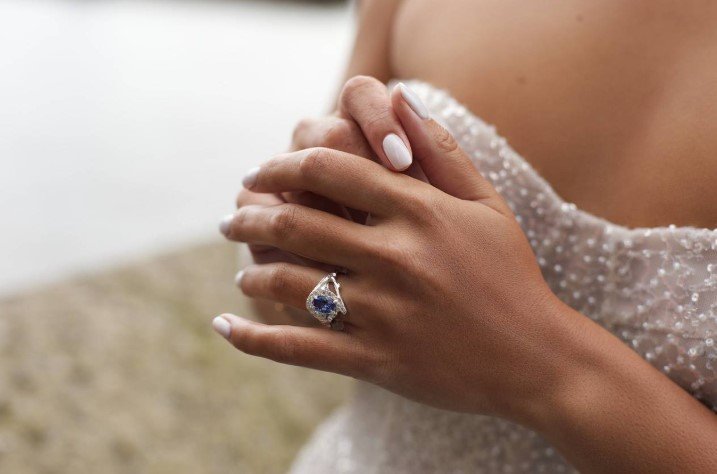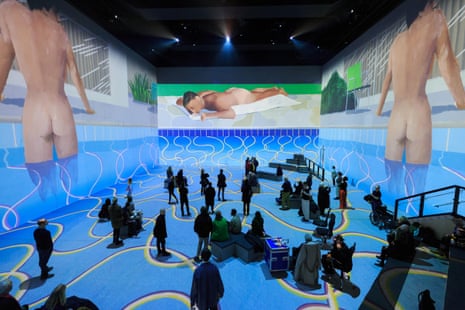April 12, 1935 — Sept. 4, 2022
Arthur Cotton Moore ’58 *60 is not but performed creating the metropolis of his delivery, and loss of life.
The renowned architect still left guiding a raft of drawings supposed to make Washington, D.C., even extra livable and wonderful. And he died believing that some others would one day convert some of his money tips into reality.
“Nothing is architecture right up until it is constructed,” he liked to say.
Moore crafted a good deal in his 87 years. He restored the Library of Congress, renovated the Outdated Article Workplace, and created Washington Harbour on the Potomac River. He oversaw the design of additional than $1 billion in office structures although defying the traditional area belief that “good architecture is just a utilitarian constructing whose biggest virtues are building funds and not leaking,” as he once put it.
As it takes place, Princeton University is the place Moore observed himself. He arrived to campus at midcentury intending to be a Overseas Services officer. But as a freshman he took a class in preliminary architectural drawing, and it awakened in him a boyhood curiosity in making properties.
“Mr. Moore sought to confer on the city’s architecture a hint of lightness, even whimsy, with his signature curvaceous, futuristic forms.”
— Emily Langer, the Washington Post
“What hooked me was the plan of producing your drawings come to life,” he the moment advised The Washington Write-up. “I uncover excellent pleasure in in fact seeing my squiggles on paper created.”
He was a two-time Tiger — earning a bachelor’s in architecture in 1958, and a master’s of fine arts in architecture in 1960. He commenced performing for large companies in New York though he was nonetheless in university after graduation, he labored for a pair of Washington’s big architectural corporations. He was 30 in 1965 when he opened his very own shop. And for the subsequent half-century he did as significantly as any person considering that Pierre L’Enfant to condition what Washington appears to be like like these days.
L’Enfant was the Parisian-born navy engineer in George Washington’s Continental Military who later on made the federal town. Moore was the sixth-era Washingtonian who liked L’Enfant’s layout — and its spot on the Potomac.
“I really like the metropolis,” Moore the moment informed the Submit. “I want to make it as outstanding as it can be, as it should really be.”
To that stop, Moore took delight in preserving what was ideal in the city’s previous structures although infusing creativeness into its new types. And he observed himself as far more than an architect: He was also a preservationist, city planner, painter, household furniture maker — and futurist.
Our Nation’s Cash: Professional Bono Publico Ideas is his 2017 reserve that presents large concepts for the potential, like an expanded National Mall with a giant underground parking garage that could double as a reservoir for stormwater. Moore instructed Washington Company Journal that he was leaving the book “as a sequence of strategies that folks can choose up over time.”
Some critics mocked Moore’s creative styles as “Moorish architecture.” He chosen to type them as Industrial Baroque, at the time telling The New York Times, “Baroque specials with present day design’s panic and loathing of the curve — just what I think is missing in modern-day design” with its limitless array of suitable angles.
“Mr. Moore sought to confer on the city’s architecture a trace of lightness, even whimsy, with his signature curvaceous, futuristic kinds,” Emily Langer wrote in the Article times immediately after his death in September.
After, in the 1990s, the Post’s architecture critic erroneously recognized Moore as the architect of the Kennedy Heart. This horrified him. He told Washingtonian magazine in 2005 that the centre appears to be like like a Whitman’s Sampler box, with toothpicks for columns.
Moore and his spouse, Patricia, lived subsequent doorway to the Kennedy Heart in their later decades, on the top flooring of the Watergate, with expansive views of the Potomac where by it curves earlier Georgetown to his personal Washington Harbour blended-use improvement.
“We really should use the river a lot more,” Moore advised Washingtonian. He instructed a wide stairway to the river from the Kennedy Middle, with ferry support to join it and the Harbour with Arlington’s Rosslyn neighborhood on the Virginia facet. “It would be this sort of an uncomplicated, all-natural circuit.”
L’Enfant devised Washington. Arthur Cotton Moore developed it. And he’s not finished yet.
Erik Brady is a freelance reporter who lives in Arlington, Virginia.





More Stories
‘I hope it gives young people some ideas!’: David Hockney’s immersive art show – photo essay | David Hockney
The Overall Winner of The Architecture Drawing Prize
10 Online Drawing Games To Play With Your Friends